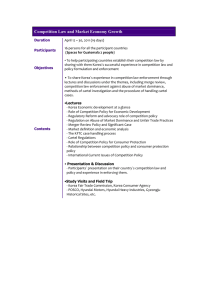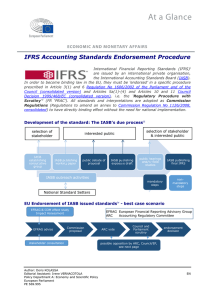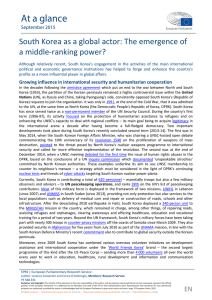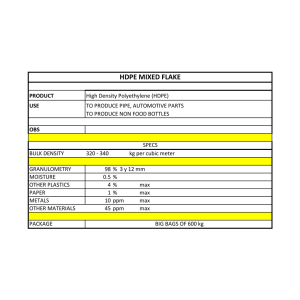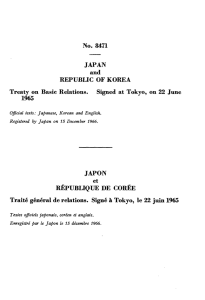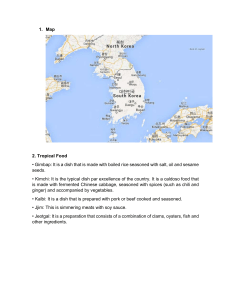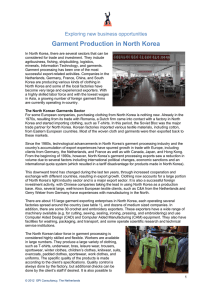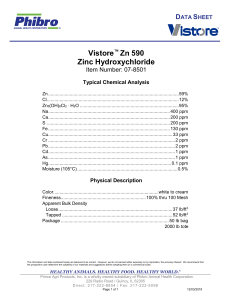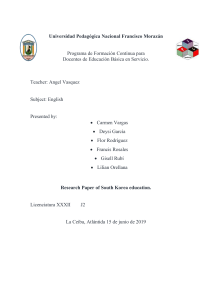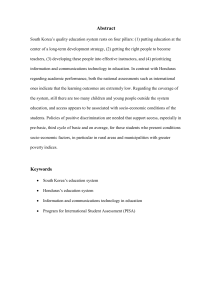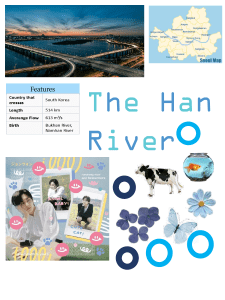China-Japan-Korea Accounting Standards Setters` Meeting 2015
Anuncio
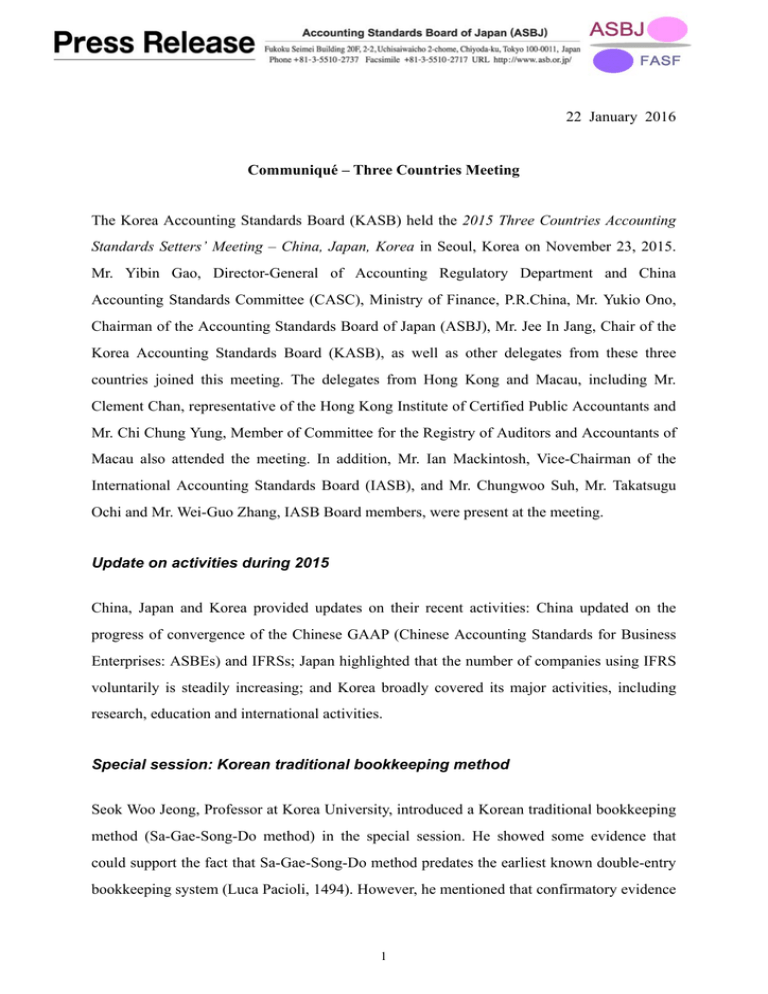
22 January 2016 Communiqué – Three Countries Meeting The Korea Accounting Standards Board (KASB) held the 2015 Three Countries Accounting Standards Setters’ Meeting – China, Japan, Korea in Seoul, Korea on November 23, 2015. Mr. Yibin Gao, Director-General of Accounting Regulatory Department and China Accounting Standards Committee (CASC), Ministry of Finance, P.R.China, Mr. Yukio Ono, Chairman of the Accounting Standards Board of Japan (ASBJ), Mr. Jee In Jang, Chair of the Korea Accounting Standards Board (KASB), as well as other delegates from these three countries joined this meeting. The delegates from Hong Kong and Macau, including Mr. Clement Chan, representative of the Hong Kong Institute of Certified Public Accountants and Mr. Chi Chung Yung, Member of Committee for the Registry of Auditors and Accountants of Macau also attended the meeting. In addition, Mr. Ian Mackintosh, Vice-Chairman of the International Accounting Standards Board (IASB), and Mr. Chungwoo Suh, Mr. Takatsugu Ochi and Mr. Wei-Guo Zhang, IASB Board members, were present at the meeting. Update on activities during 2015 China, Japan and Korea provided updates on their recent activities: China updated on the progress of convergence of the Chinese GAAP (Chinese Accounting Standards for Business Enterprises: ASBEs) and IFRSs; Japan highlighted that the number of companies using IFRS voluntarily is steadily increasing; and Korea broadly covered its major activities, including research, education and international activities. Special session: Korean traditional bookkeeping method Seok Woo Jeong, Professor at Korea University, introduced a Korean traditional bookkeeping method (Sa-Gae-Song-Do method) in the special session. He showed some evidence that could support the fact that Sa-Gae-Song-Do method predates the earliest known double-entry bookkeeping system (Luca Pacioli, 1494). However, he mentioned that confirmatory evidence 1 has yet to be found. He also briefly touched upon the mechanics of Sa-Gae-Song-Do method, comparing them with the modern double-entry booking system. Technical session Pollutant Pricing Mechanism A representative of CASC presented latest development of Chinese Emissions Trading Schemes, the progress made by the working group of Asian-Oceanian Standard-Setters Group (AOSSG) on Pollutant Pricing Mechanism (PPM) project, and China’s proposed accounting treatment for cap-and-trade emissions trade schemes. The following issues were discussed during the meeting: (a) nature of emission allowances and the related obligations created by the schemes and how to account for them, including the measurement approach for those allowances and obligations; (b) recognition of ‘day 1 gain’ or not; (c) roles of business activities played in the accounting for the PPM; and (d) presentation of the PPM in the financial statements. China, Japan and Korea all agreed that no day 1 gain should be recognised and no net gain or loss should also be recognised during the compliance period if the actual emissions are equal to the allowances allocated. The three countries agreed to explore and coordinate their views further in order to contribute to the IASB’s PPM project. Conceptual Framework A representative of the ASBJ shared their preliminary views on the IASB’s Exposure Draft ED/2015/3 Conceptual Framework for Financial Reporting, followed by the discussion among the representatives from the three countries. The areas discussed included: (a) elements of financial statements; (b) selection of measurement bases; and 2 (c) profit or loss and other comprehensive income (OCI). Through the discussion, representatives from the three countries identified the areas of their common interest, and agreed that the three countries should work together in contributing to the IASB’s work on review of the Conceptual Framework. Effect analysis for IFRS A representative of the KASB explained the KASB's overall due process of effect analysis. The representative then introduced the results of its effect analysis of IFRS 9 in comparison with those of the effect analyses performed by other jurisdictions. Sharing their experiences of effect analysis, China, Japan, and Korea agreed that there are difficulties in conducting an effect analysis, arising from the lack of quantitative ex-ante analysis methods, which leads an analysis to rely on qualitative methods such as survey, low rate of responses to surveys, difficulties in soliciting insights from users and the lack of data from empirical studies. Closing remarks Mr. Yuki Ono announced that the next meeting will be held in Japan in late October 2016. Dr. Jee In Jang thanked all attendees for their active participation in the meeting. He noted that this year's meeting was meaningful in that the meeting covered relevant topics and led to in-depth discussions. 3
